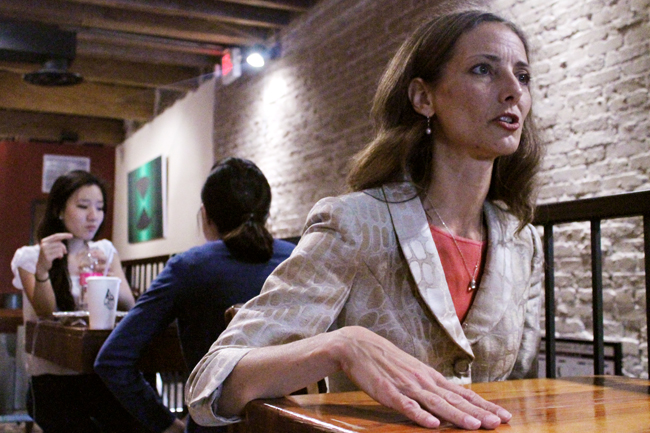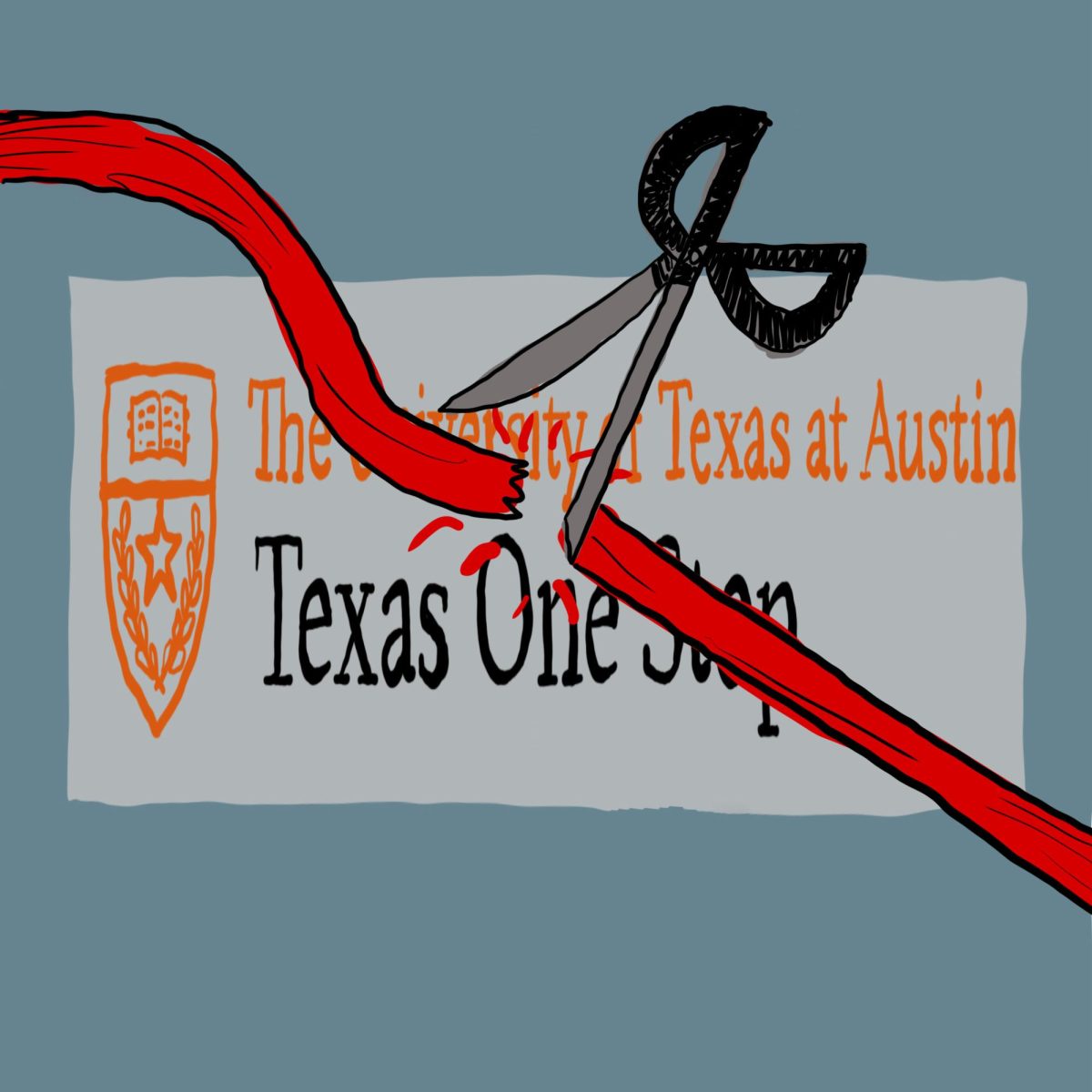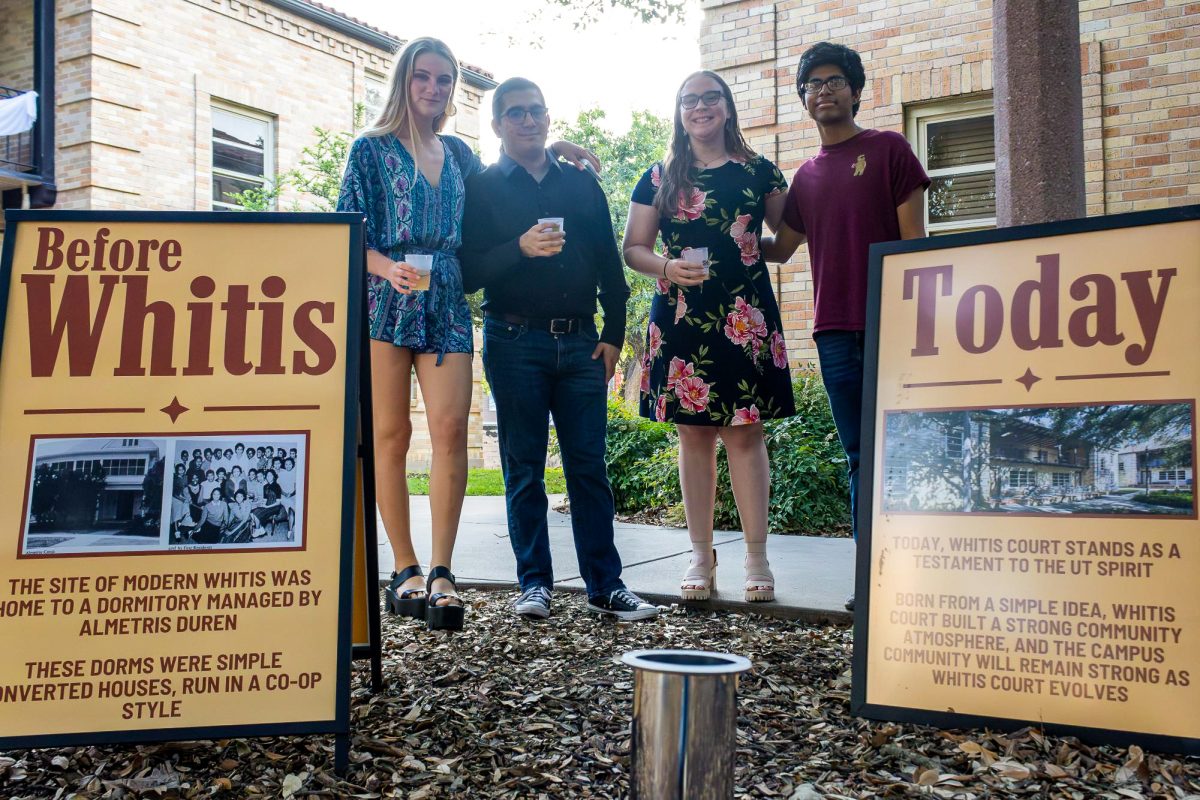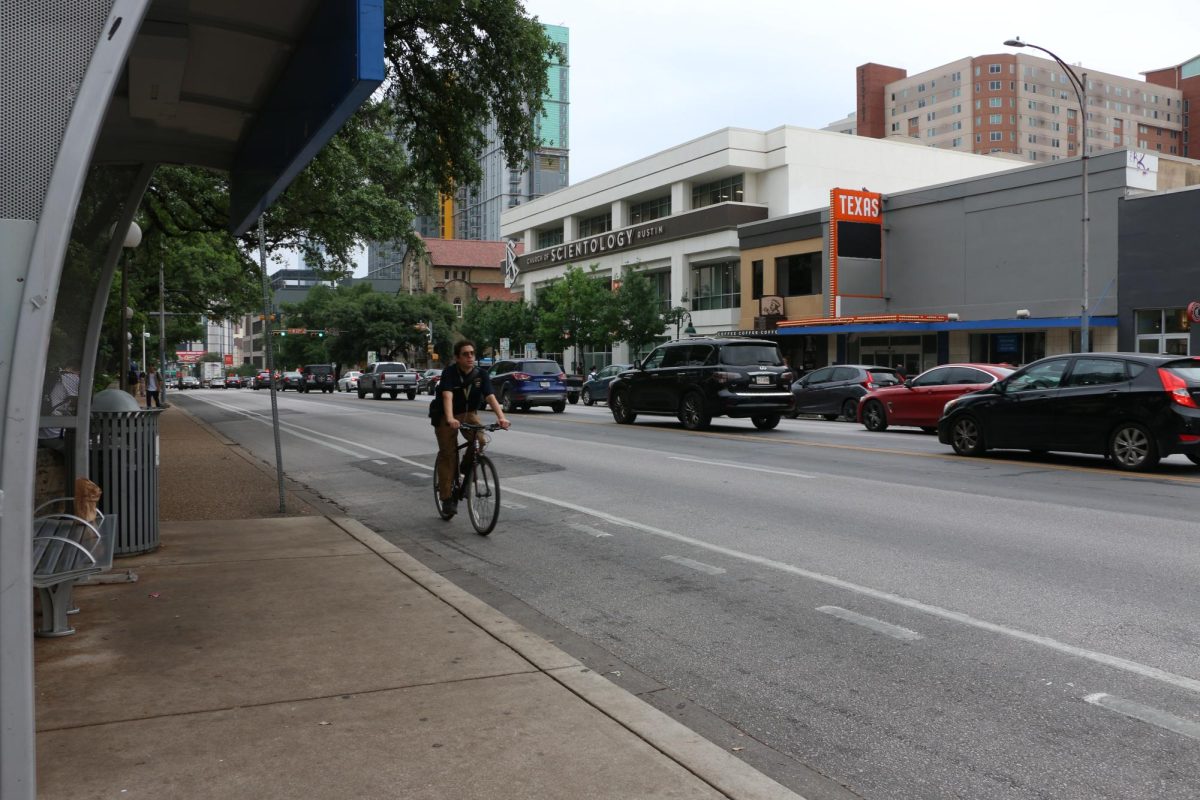Kathie Tovo, Austin City Council member and District 9 seat candidate, sat down with The Daily Texan to discuss her plans should she be re-elected. This year’s city election is the first under the council’s 10-ONE structure, in which each council member will represent one of 10 geographic districts in the city. District 9 covers most of the UT campus, West Campus, North Campus, Hyde Park, downtown Austin and South Congress. This interview is the last in a series of three with the District 9 candidates.
The Daily Texan: You voted for the temporary ordinance legalizing transportation networking companies at the City Council meeting on Thursday, but you raised several concerns before your decision. Why were you so hesitant?
Kathie Tovo: That ordinance was rushed. It was going through a stakeholder process and the sponsor, Chris Riley, decided to bypass the process. Temporary or not, any time we’re enacting legislation, we have an obligation to make sure it protects the health and safety of Austin. With regard to this one, it was important to me to make sure the rights of the consumers are protected. One of the changes I really hope to achieve in the ordinance was to make sure we had some sort of caps on surge pricing. I believe we should have TNCs, but it was important to me to put reasonable limits on surge pricing. In the end, it’s the riders that will pay the high prices for that.
DT: If the ordinance was rushed, was voting to legalize TNCs the right decision?
KT: Usually we don’t adopt a temporary ordinance while the stakeholder process is still going on, but it allows the TNCs to operate here legally and in a way to protect the public’s interest. I think we were able to spend the time on the ordinance that we needed to. I looked at the recommendations that stakeholders and staff made and made sure we incorporated those.
DT: Urban rail is another hot topic in transportation with the city’s Proposition 1 on the ballot. Why do you support the plan?
KT: Transportation issues are not getting better, and we need to attack it from different angles. High-capacity transit offers potential for us as a city. Especially for University students, I think it could be really positive because it runs so close to campus. And I believe it’ll be a real asset for games, events and other things that draw a lot of traffic.
DT: What do you think about the changes the new 10-ONE council structure will bring?
KT: It’s been interesting being on the campaign trail. Some of [the candidates] I’ve worked with on boards and commissions, and some have a lot of city experience and will be able to take office seamlessly. Others will have a learning curve, but it’s a very smart and engaged group. It’ll take us a little time to figure out how to work in the new council.
DT: You just went to a women-in-City Council luncheon. Has putting more women in city government been a part of your focus this race?
KT: That’s not been an intentional focus. I’m the 16th woman to serve on City Council in the history of its existence. We need to encourage more young women to consider public service. Whenever I have an opportunity, I try to go to schools and speak. That’s always a message I try to get to young women. You have so many opportunities to be in public service, and we need the council to look like Austin in terms of diversity.
DT: Are there any issues that you haven’t been able to talk about as much on the campaign trail?
KT: There’s a central committee that is focused on women’s health, particularly with regard to the [Dell Medical School], and we asked our women’s commission to make sure we are connecting with that committee, and women are able to get the services we need. One of the things I’m working on with the women’s commission is to make sure we are keeping tabs on women’s health. With the advent of the medical school, I think people are worried about Seton [Healthcare Family]’s role with the school. There is concern about the future of women’s health. And we need to make sure we can still provide adequate women’s health care.
DT: Does the historically low student voter rate in city elections worry you?
KT: I am optimistic. I see a lot of enthusiasm about this election, and so I believe the numbers this time can be a lot higher. I’m hopeful. I’ve had a lot of volunteers in the student area, and I’ve been on campus myself talking with voters, and people seem engaged, and they express they intend to vote. We see that there are student groups who are forming more formal groups with city, like the [Student Government] City Relations agency. There are more formal ways to be interactive with the city. I think that would help me to know who to reach out for issues, and I think it will encourage students to be more involved. I like to think my office has always been open to students.
DT: What would you do without a role on the Council?
KT: I ran for Council because I was interested in the issues. I’m interested in making sure as our city grows, it stays a city that is livable. Before I ran, I was a University educator, and I loved the research and working with students. I would go back to teaching. I do miss one-on-one student interactions.Some answers in this interview have been edited for brevity and clarity.















